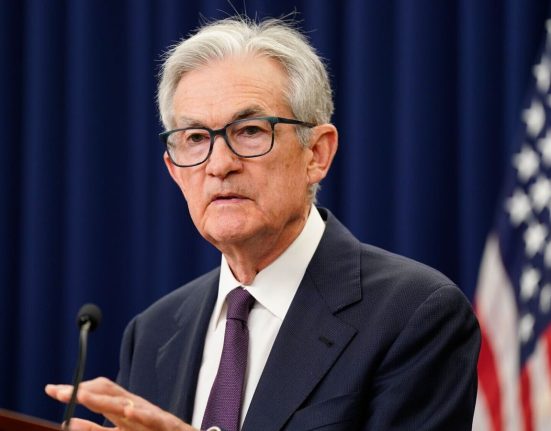Did Republicans and Democrats just join forces to put our economy on the path toward crisis?
That’s exactly what Mark Copelovitch, a professor of political science and public affairs at the University of Wisconsin-Madison–as well as the author of multiple books about banking–is worried about.
In an essay published Thursday in Barron’s, Copelovitch raises alarm bells about the Genius Act, a new law that President Trump signed last week after the House passed it in a semi-bipartisan 308-122 vote. The act—one of three different cryptocurrency-related bills that the House OK’d during Republican leadership’s self-declared “Crypto Week”—creates a regulatory framework for stablecoins, a class of crypto assets that have their value pegged to that of more traditional financial assets.
“I am concerned that this legislation, and the broad adoption of stablecoins that it will facilitate, may trigger a crisis at the very heart of the banking system,” writes Copelovitch, the author of “The International Monetary Fund in the Global Economy: Banks, Bonds, and Bailouts” and co-author of “Banks on the Bank: Global Capital, Securities Markets, and the Political Roots of Financial Crises.”
He continues: “Since a stablecoin could trade at varying exchange rates to par against the dollar, an asset supposedly worth a dollar might not always be worth a dollar. … This could create problems that mirror those of the 19th century American era of ‘wildcat’ free banking and financial panics.”
Copelovitch says he’s also worried that America’s formal embrace of stablecoins will lead to an influx of foreign capital as overseas investors look for safe assets that are backed (indirectly) by the U.S. government—a dynamic he says is “precisely the fuel that makes banking crises more probable.”
Furthermore, the Wisconsin-Madison professor warns that the rise of stablecoins will increase financial institutions’ exposure to other, sketchier cryptocurrencies while also incentivizing banks to embrace riskier commercial lending practices in an effort to woo customers who might otherwise switch from bank deposits to stablecoins.
“In 2020, I co-authored a book with MIT professor David Singer about why some countries are more prone to systemic banking crises than others,” Copelovitch writes in the Barron’s piece. “Our research highlighted the effects of two variables in combination: foreign capital inflows and financial market structure. We found that foreign capital fuels banks’ dangerous behavior, whereas banks are more likely to take on excessive risks when operating in a financial system with large securities markets.”
He continues: “I see parallels here to stablecoins.”
Unlike other cryptocurrencies such as Bitcoin and Ethereum, the values of which can swing up and down erratically, stablecoins are meant to serve as a more reliable store of value because they’re tied—either algorithmically or through asset reserves—to some sort of non-crypto asset, such as U.S. Treasuries or the dollar. (That still doesn’t mean they can’t crash.) The most popular ones are currently Tether and USDC.
The Genius Act is America’s first major piece of stablecoin regulation and marks a triumph for the resurgent crypto industry, which has emerged from a prolonged fallow period (remember FTX?) thanks to its close ties with the Trump administration. The law will regulate who can issue stablecoins, requiring that they back their cryptocurrency “on a one-to-one basis” with an external, liquid asset and publish monthly details about those reserves. The Senate already passed the legislation 68-30.
“The GENIUS Act prioritizes consumer protection, strengthens the U.S. dollar’s reserve currency status, and bolsters our national security,” the White House wrote in a statement after the bill became law. “President Trump is fulfilling his campaign promise to position America as the global leader in cryptocurrency.”
The other two bills that the House passed during crypto week would create a regulatory framework for non-stablecoin crypto (the Clarity Act) and ban the Fed from issuing its own digital currencies (the Anti-CBDC Surveillance State Act). Both now head to the Senate for approval.
The final deadline for the 2025 Inc. Power Partner Awards is tonight, July 25, at 11:59 p.m. PT. Apply now.







